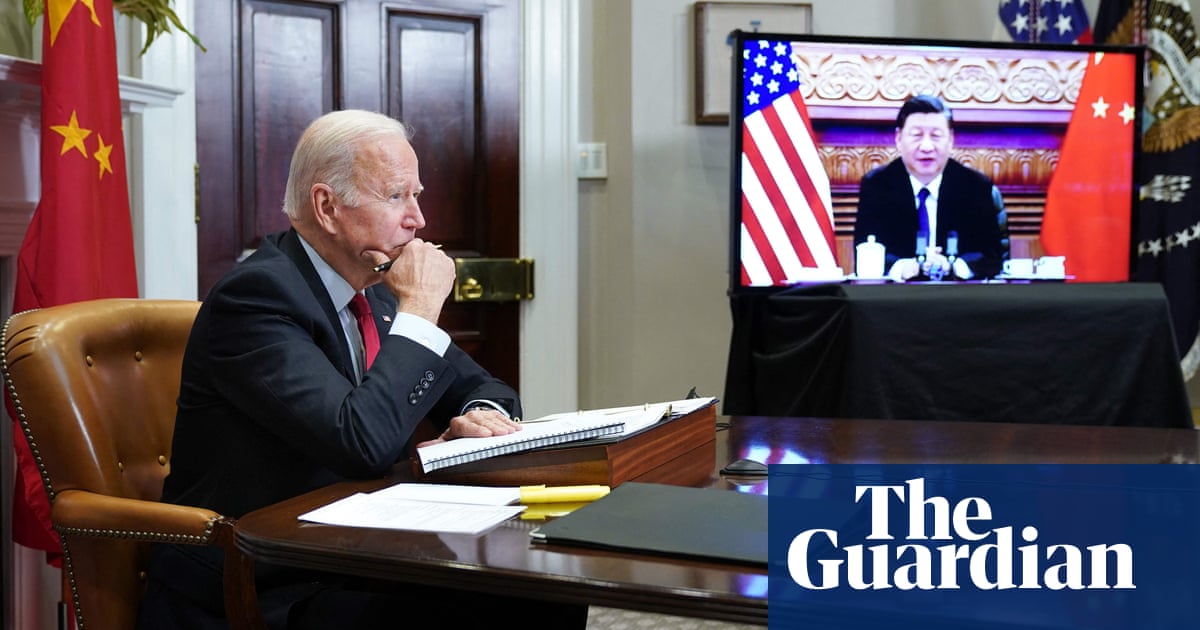
The much-awaited meeting between Joe Biden and Xi Jinping achieved its admittedly low expectations when the two finally met and showed a willingness to move the bilateral relationship in a positive direction.
Progress began to show soon after the meeting, for example on journalist visas. But the two sides also provided a list of existing grievances following the three-and-a-half-hour talks. The US said it raised its concerns over China’s human rights record, its “unfair trade and economic practices”, and its behaviour in the South China Sea.
On the issue of Taiwan, China warned Biden not to “play with fire”. Beijing also expressed its disapproval of dividing the world into blocs and engaging in ideological demarcation, saying they would “inevitably bring disaster to the world”.
The separate statements illustrated the depth of the division between the world’s two superpowers.
“[Both] sides are very clear-eyed about where they diverge and are not likely to reach agreement,” said Todd Hall, the director of Oxford University’s China Centre. “But both also recognise their shared interest in mitigating the major potential dangers in the relationship and working where possible towards common ends.”
Zhao Tong, of Carnegie Endowment for International Peace in Beijing, said China saw US policies aimed at protecting its own basic values as “threats to China’s core interests”. “In this sense, it’s a good sign that both leaders recognised the need to resume practical cooperation, but how far can it go eventually is still a question.”
Days before the meeting, the US and China surprised delegates at Cop26 in Glasgow by pledging to work together on cutting greenhouse gas emissions. Analysts say it shows despite the fractious relationship, there is still room for the two diverging superpowers to cooperate.
But both sides also understand that climate is not the ultimate dealbreaker. As Li Shuo of Greenpeace East Asia pointed out, the Cop26 decision related to nationally determined contributions “is actually stronger than the US-China deal”. The bilateral deal, Li said, was “weak due to their contentious relationship and constrained by their limited domestic climate progress”.
For Beijing, Taiwan is its ultimate red line. It has long suspected Taipei of trying to achieve independence through implicit support from Washington, and the US of using Taiwan to contain China. “It is like playing with fire, and those who play with fire will get burned,” a Chinese readout quoted Xi as saying.
Xi told Biden during the meeting – according to Chinese media – that “we have the patience, and we are willing to strive for the prospect of peaceful reunification with the utmost sincerity”. But he also warned that his country “will have to take resolute measures if the ‘Taiwan independence’ separatist forces provoke, compel or even cross the red line”.
For Washington, Beijing’s assertive policies both domestically and internationally in the past decade have brought a sense of existential crisis. Biden frames the US’s competition with China as a matter of democracy verses autocracy. It is so pressing an issue for him that next month he will convene a “summit for democracy”. But the White House will soon run into an old question: to what extent it should involve democratic Taiwan in this club?
Until and unless both sides give issues such as Taiwan a new framing, there will be little genuine progress in the overall relationship, analysts say. What we will be seeing, according to Hall, is “rather an attempt to enable cooperation where feasible while preventing the disagreements and competition both sides now view as part of the relationship from spiralling out of control”.
It is what Biden calls “common-sense guardrails” at a time of great power competition. It is also what China’s Global Times describes as “injecting certainty” for the bilateral relationship. It is, perhaps, the best we could hope for in the foreseeable future.


